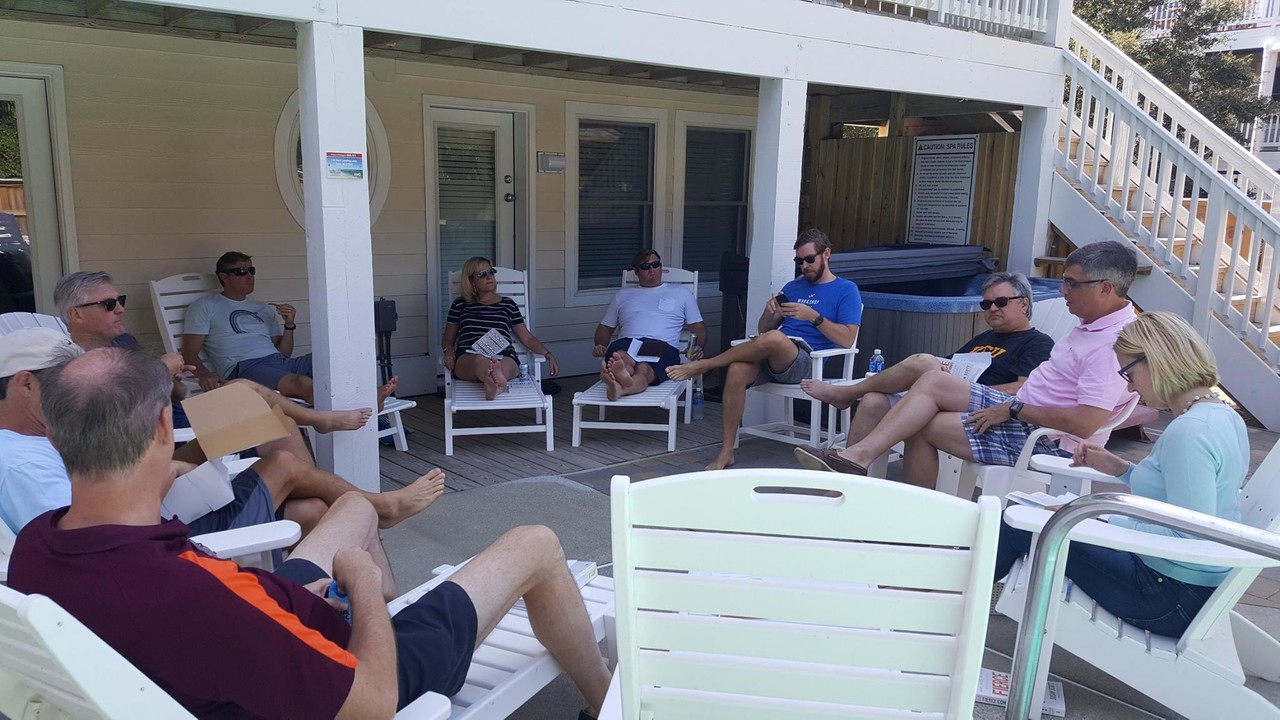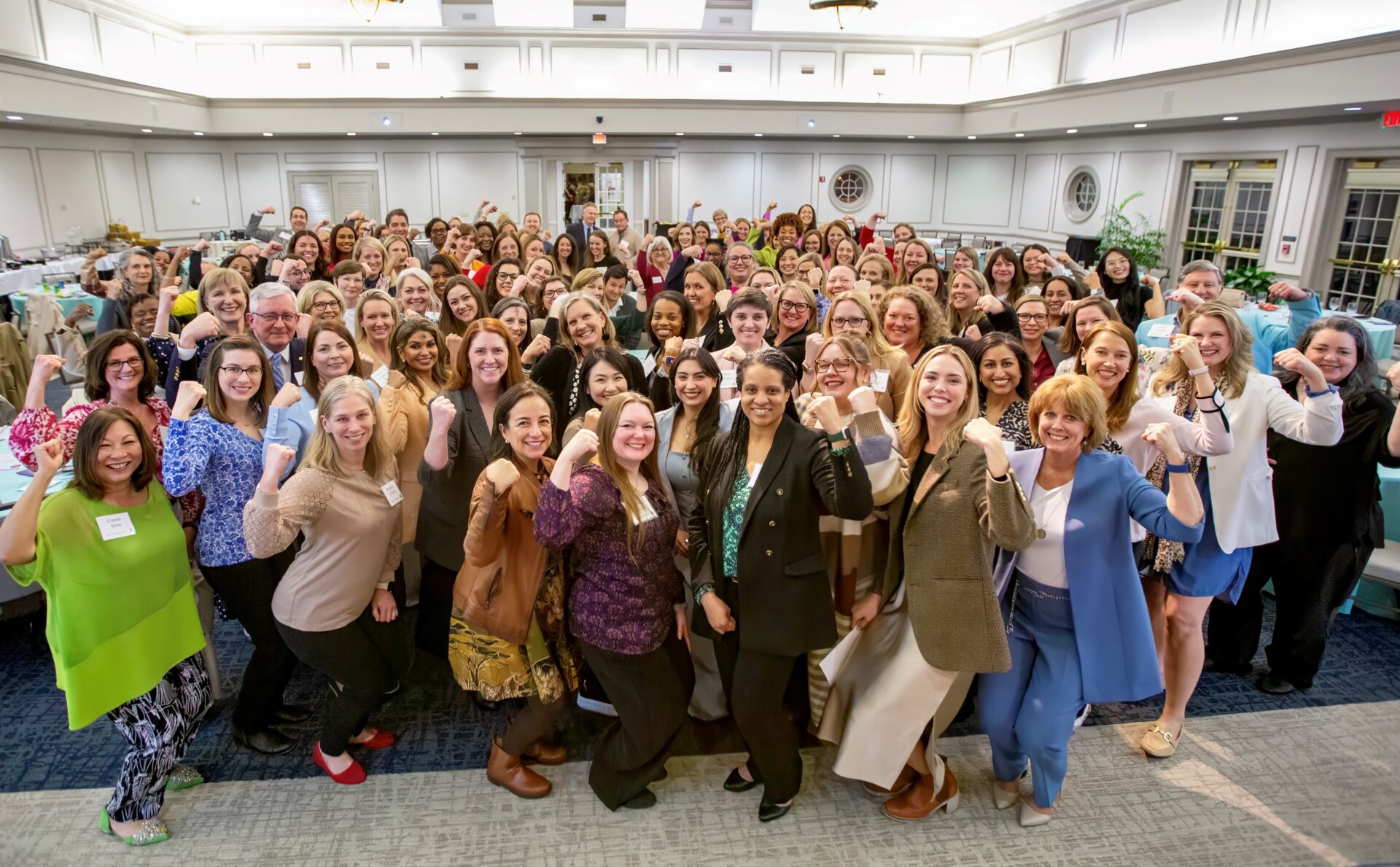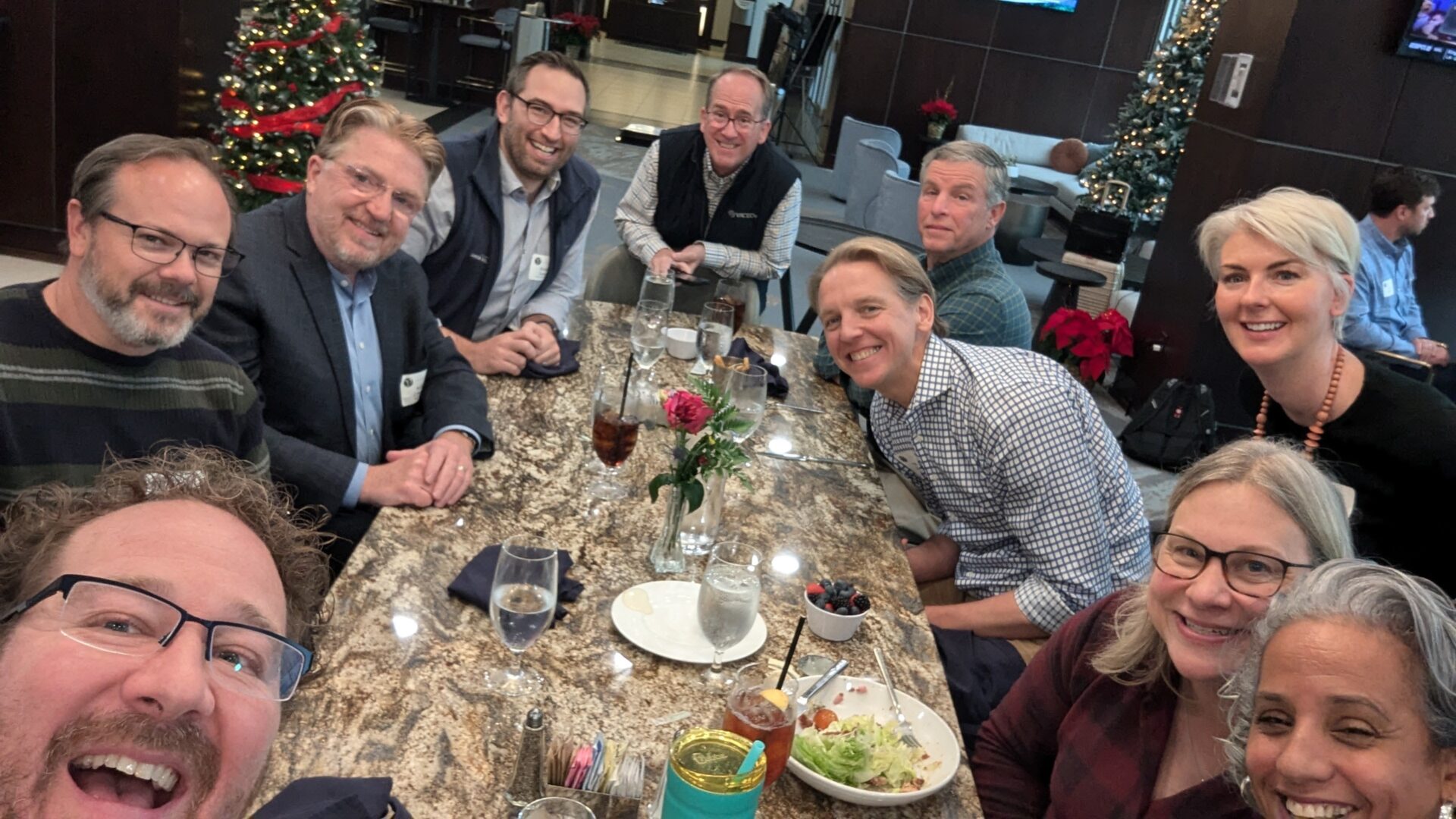Why Retreats Matter for VACEOs Roundtables and Forums

Retreats are not just a tradition—they’re a powerful and enjoyable best practice for VACEOs Roundtables and Forums. We strongly encourage every group to take a two- to three-day retreat each year. Forum expert Mo Fathelbab puts it best: “A single retreat can have as much value for group growth as six to 12 months of meetings.”
These retreats aren’t just casual getaways. They’re thoughtfully planned with a formal agenda, often including the same updates and presentations you’d expect at a regular meeting. Many groups also incorporate exercises designed to deepen understanding and strengthen connections among members. Some even bring in outside facilitators to guide development or learning sessions.
But retreats aren’t all business—play is a key ingredient to their success. Over the years, our CEOs have bonded through activities like fishing, biking, off-roading, climbing, shooting, baking, gaming, racing, wine tasting, attending NBA and NFL games, factory tours, and more. Cooking together and exploring unique dining experiences have also become favorite traditions for many groups.
Each group makes the experience their own. One VACEOs Roundtable gathers annually at a member’s house on the Chesapeake Bay. Another Forum explores a new city each year, leveraging member connections to visit interesting businesses or entrepreneurs.
Ultimately, retreats offer our CEO peer groups a chance to recharge, reconnect, and come away with deeper, more meaningful relationships.
Celebrating International Women’s Day with VACEOs: A Call to Action for Young Leaders

Contributed by Debbie Fisher, Director of Graduate Programs, Robins School of Business.
For the past eight years, the Robins School Graduate Programs proudly partnered with VACEOs to host our annual International Women’s Day Celebration—a gathering that sparks inspiration, fosters connection, and challenges us to think bigger. This year, we had the privilege of welcoming Sue Davies, EVP and CHRO of Markel Group, as our keynote speaker. Joining Sue for our panel conversation were Regina Elbert, SVP and CHRO, Dominion Energy, Paola Cardenas, MBA Student. The panel session was moderated by Elizabeth Chu, CEO, Valorem Advisors.
Sue’s message was clear: success is never a solo journey. She spoke on the power of support, networking, and community, reminding us that lifting others up is just as important as climbing the ladder ourselves.
At a time of rapid change and uncertainty, taking a moment to reflect on women’s achievements—and the work still ahead—felt especially critical. A sobering statistic from the IWD website puts things into perspective: “At the current rate of progress, it will take until 2158—roughly five generations from now—to reach full gender parity.” That’s a reality we can’t afford to accept.
The Power of Paying It Forward
Sue’s career has taken her across four industries and continents, shaping her leadership in ways she never imagined. But what truly propelled her forward were the people who believed in her, challenged her, and opened doors. She shared insights from the Markel Style, a philosophy that creates an environment where individuals are encouraged to reach their full potential. Sue emphasized that her greatest growth didn’t come just from observing successful people—it came from those who helped her believe in herself.
Her message to us as leaders?
- Success isn’t just about what we achieve—it’s about who we lift along the way.
- There will be moments to step sideways, step back, or pause before the next big leap. That’s okay.
- Clarity in our values and vision will keep us focused, even in times of uncertainty.
What This Means for CEOs
If you’re early in your career—or at an inflection point—keep this in mind:
- Believe in yourself. Take the opportunities that scare you. Step outside your comfort zone.
- Listen and learn. Seek advice, welcome feedback, and surround yourself with people who challenge you.
- Open doors—and walk through them. Take bold steps, even when you’re unsure.
- Be the leader you needed. If someone has inspired you, now is the time to pay it forward and be that person for someone else.
Change doesn’t happen by waiting. It happens when we act—together.
Building Relationships Through Volunteering

“Business does not thrive without relationships”, Todd Mawyer, President of TK Promotions
In early and snowy January, I was fortunate to assist with our board retreat. While the board did important work on strategy which was inspiring, I was also excited to see board members connect with one another. Many had not met each other before, but after spending time working and eating together, they each left the snowy retreat with a new relationship or two.
At VACEOs, our Roundtable and Forum groups offer some of the most valuable opportunities for CEOs to connect and collaborate. Sharing experiences with fellow CEOs isn’t just insightful, it can spark lifelong relationships that help both personally and professionally. The opportunities for connection don’t stop there. Larger events like the Quarterly Luncheons, Spring Retreat, and even informal gatherings provide powerful networking opportunities.
However, there’s another, often overlooked, way to connect and deepen relationships within the VACEOs community: volunteer opportunities. As a member-led organization, VACEOs relies on active involvement from members to help guide the organization forward. Volunteering not only helps shape the future of VACEOs, but it also connects members and sponsors in meaningful ways.
What makes these volunteer opportunities truly valuable are the connections that happen when members work together on common goals. Committees bring together members from different Roundtables and Forums, creating an environment where each can connect with fellow CEOs beyond their regular group.
This collaborative setting fosters a unique bond between members who share a deep understanding of the challenges and rewards of leading a business. The result is not only more productive interactions, but also an expanded network that can offer new insights and opportunities for their business
K.Alferio, President of The Cultural Arts Center sums it up perfectly, “I am not an extroverted networker in new situations, so it can be hard for me to get maximum benefits from organizations. I am perfectly comfortable addressing hundreds of people from a stage…but getting involved on a face-to-face level can be difficult. This is where volunteering comes into play. Working on committees, volunteering to help at events, etc. gives me the chance to meet a few people at a time and become more attuned to the group. Roundtables are a great way to become involved in a small setting, but if you are looking for ways to glean real benefit from VACEOs…or any group…consider volunteering and becoming an active part of the member community. It makes a big difference for me.“
Beyond Profit: Why Measuring Social Impact is Good for Business

Contributed by Susie Fife, CEO, Red Orange Studio
If revenue is vanity, profit is sanity, and cash is king…then impact is heart. Business leaders know that there’s more to measuring the health and success of a company than dollar signs. That’s why we focus on culture and values, brand reputation and employee satisfaction – these are the heart of the business. We want to create an organization that does good in the world, not only for our bottom line, but also for our teams and our communities.
But how do you measure the good a company does? And how do you tell that story in a way that generates positivity – and ultimately contributes to making the business more successful?
The business case for social impact is simple – when you do good work in the world, you build trust, create community and leave a legacy.
Build Trust: Being transparent about how you monitor and measure social impact builds trust within a team as well as with clients and the community. Whether your goal is to reduce your carbon footprint or serve an underserved community, quantifying and sharing those efforts creates accountability. If we measure the things that matter, then let’s put some metrics to the good our companies are doing. And as we all know, people are more likely to do business with companies they trust.
Create Community: If you’ve recruited talent who share your company’s core values, then chances are they will rise to the challenge if asked to structure and measure the impact they’re making. As leaders, our role is to cast the vision and create the opportunity. But our teams are the ones who ultimately create impact through their passion, relationships and dedication. An engaged community is great for recruiting and retaining the best talent.
Leave a Legacy: Most leaders think about what kind of legacy they want to leave. We work hard in our businesses and we want that to matter in the end. How do you want to be known and remembered as a leader? Social impact is an opportunity to create that legacy and take your leadership role beyond the spreadsheets and board rooms – and into the heart of your community.
Sharing Your Impact Story
From food drives to recycling efforts, most businesses are engaged in some socially responsible initiatives. Once you start measuring your impact, and focusing those efforts in a specific direction, you’ll be eager to share your stories. Here are some tips to help communicate your social impact authentically:
- Brand your social impact efforts. Develop a unique brand for your CSR initiatives so that employees, customers, clients, and other stakeholders can easily recognize the good work your business is doing. You may recognize some branded programs such as: Cox Conserves, Sentara Cares or CarMax Cares.
- Publish a report. You don’t have to create a full CSR report or a detailed sustainability report, but find a way to document and share the success stories of your social impact. It could be a simple blog post or email, or a video report shared on your website. Focus on the stories of the people who benefit from your company’s impact initiatives.
- Create a signature event. Hosting a 5k race for charity or a clean-up day can be as simple or as complex as you want to make it. Just find an activity or create an event that can become a central focus for your social impact. This approach channels goodwill and positive energy into a single, high-impact effort that tells a more compelling story. At Red Orange Studio, our signature event is the PIP Nonprofit Award, an annual pro-bono award for Virginia nonprofit organizations. It gives us a focus and a structure that allows us to include other agency partners to help multiply our impact.
- Find your B Keepers. As a Certified B Corp, we are encouraged to have designated “B Keepers” to help us stay the course as we use our business as a force for good. If your company is already engaged in social impact, you most likely have team members who are natural ambassadors for the cause. Equip them and empower them to tell the story!
Measuring and communicating your social impact isn’t just a feel-good exercise—it’s a strategic imperative that builds trust, strengthens community, and secures a lasting legacy. By quantifying the good your company does, you not only reinforce your commitment to doing good but also create a roadmap for sustained business success. As leaders, let’s embrace the power of transparency and purpose, and show that when we invest in making a difference, everyone benefits.
Northern Virginia CEO Forums
VACEOs is forming CEO Forums in Northern Virginia this spring! Regional Executive Ed Johnson will be facilitating these peer groups.
Forums are our facilitated peer group. Using the same best-practice techniques that we use in our self-led Roundtables, Forums meet every other month to share and learn together in a confidential environment. All of our peer groups meet in person.
Consisting of 8 to 10 non-competing CEOs, the members of a Forum commit to openly sharing their challenges and opportunities with each other, and learning from the experiences of the group. Here’s what members say about their peer group experience at VACEOs.
All members of VACEOs benefit from the largest CEO network in Virginia, connected via our private online network, and through learning and social events like our Spring Retreat.
CEOs interested in our NOVA Forums should contact Ed Johnson, Ed@VACEOs.org. For basic membership information, see our web site.

Recent Comments